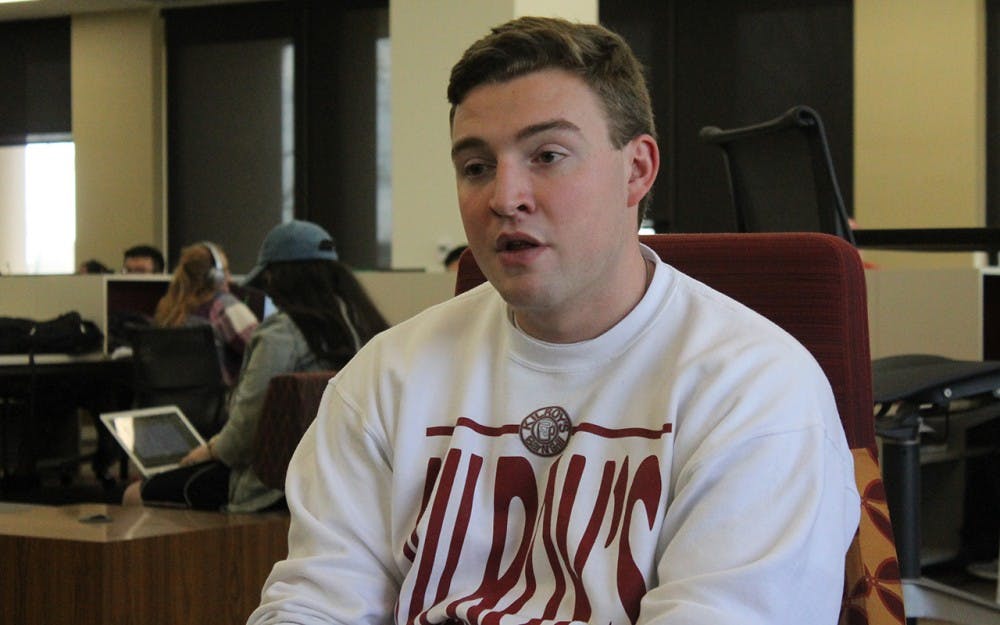The Interfraternity Council wants to take self-governance to a new direction by creating an internal evaluation plan.
As of now, junior Andrew Cowie , IFC’s president, said it is just being called “chapter evaluations,” and it aims to strengthen the greek community by creating more accountability and assistance.
“The ultimate goal is to assign chapters a scorecard that gives a chapter an evaluation across 10-12 categories in chapter operations,” Cowie said. “As a chapter executive board, we can look at this scorecard and see what areas we could maybe use some improvements in.”
Cowie said the idea came about after a similar scorecard was released by the office of Student Life and Learning earlier this semester. He said the evaluation was ineffective in a lot of ways and was too vague about chapter operations.
So Cowie said he decided to create his own.
He said it was important to create an internal evaluation because while outsiders are objective, they often do not properly understand the community. He said Student Life and Learning struggled because categories like brotherhood or leadership can be hard to evaluate from the outside.
That’s why Cowie said he thought the internal review would be more helpful as fraternity members can better understand the complexities of house life.
“Given how unique our greek community is, nobody really knows that as well as we the greek leaders,” Cowie said. “So the most accurate evaluation would have to come from leaders within the greek community.”
Cowie said down the line he could see the system opening up to a third party to conduct or help conduct part of the evaluation, but he said he still does not see how effective an outside perspective would be on issues specific to the community.
One of Cowie’s colleagues at IFC is Jack Polte, the vice president of standards, and he said he agreed about IFC’s ability to properly execute its evaluation plan.
“I don’t think there will be bias,” Polte said. “And I don’t think of it as a evaluation. It is a progress report.”
However, Polte and Cowie said the point of their endeavor was not to pit fraternities against each other or punish them in some sort of ranking on.
Cowie said he would like to see these chapter reports eventually presented to the public. He said it would be an effective way for the non-greek community to know how much expansion each chapter goes through. He said it could be used for recruitment because by “providing a snapshot of what the chapter looks like this could help students make better decisions when going through the recruitment process.”
The evaluation plan has not entirely been rolled out, but IFC said it is about to initiate the first few steps. IFC will finalize the questions and categories to make sure the results are quantifiable. Cowie said a lot of the process has been making sure the chapter interviews are short enough answers can be processed and suggestions can quickly be returned to the chapters.
As of now, he said each chapter’s initial interview is expected to take 45 minutes to an hour. Interviews are expected to start next week.
Polte said some other challenges came from the fact that every chapter is different. As a result, not every chapter is going to need the same advice or respond to the same advice in the same way, he said. However, he said despite the challenges he was confident in the potential of a chapter evaluation plan.
“I think it’s going to be a good plan for chapters to have in the long run and help the community prosper and ensure the longevity of greek life,” Polte said.






